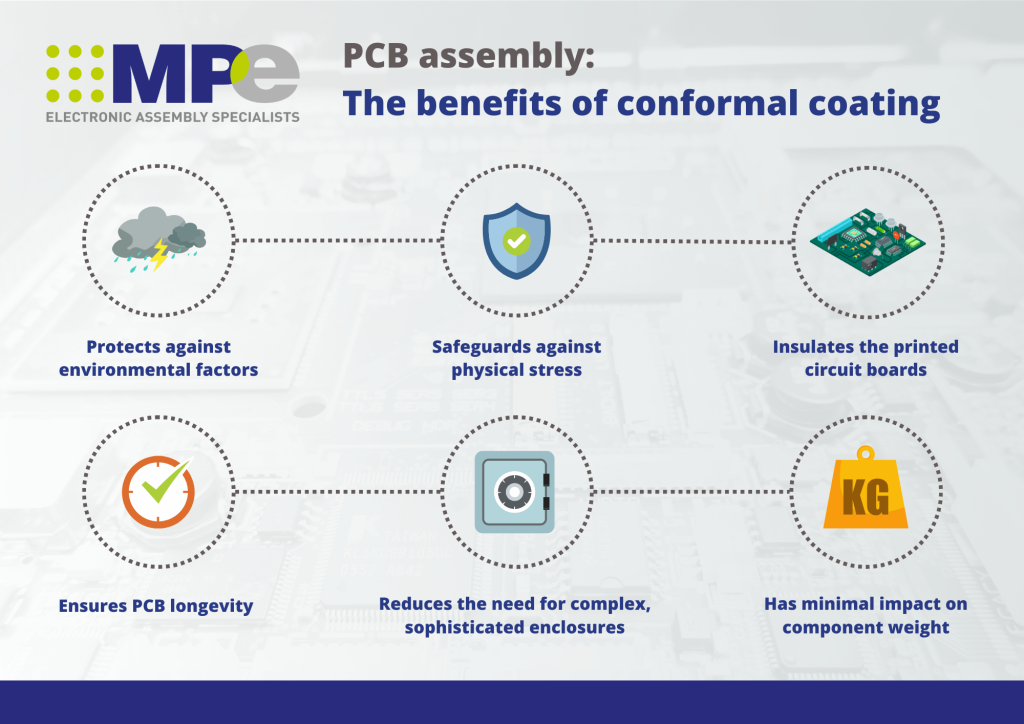It is critical that your products go to market with their circuitry properly protected and fit for purpose, and a common choice of PCB protective system is conformal coating.
The application of PCB protective technology is an important part of the manufacturing process and your choice of coating is crucial. Conformal coating offers a good level of protection and there are various conformal coating technologies to choose from.
To help you make the right decision about PCB protection and get the coating solution best suited to your needs, we have put together this short guide to conformal coating in PCB assembly.
What is conformal coating of a PCB?
Conformal coating is polymeric film that is used to cover circuit boards, protecting them from a range of environmental and physical factors, and helping to ensure component and product longevity.
The popularity of this coating has risen significantly in recent years, largely as a result of greater electronic miniaturisation and growth in wearable technology. The functionality of this advanced coating system is well suited to many types of circuit boards and products, including those with strict weight and thickness restrictions and where space is limited.
There are a number of conformal coating applications available, including acrylic acid resin, epoxy resin, organic silicone, polyurethane and parylene. There is also a UV curing coating application. The one you should choose depends on the type of protection required.
The benefits of conformal coating in PCB assembly
Conformal coating offers a number of benefits for manufacturers looking to safeguard product performance and enhance brand reputation. This PCB protective system does the following:
- Protects against environmental factors, such as chemical and corrosive attacks, and moisture and water ingress.
- Safeguards against physical stress, occurring during PCB assembly and product use, including thermal and mechanical shock.
- Insulates the printed circuit boards, allowing a reduction in PCB conductor spacing.
- Ensures PCB longevity, protecting against degradation caused by fungi, heat, humidity, dust and dirt.
- Reduces the need for complex, sophisticated enclosures, helping to optimise manufacturing process timeframes and costs.
- Has minimal impact on component weight, which helps to optimise production costs and contributes to better product performance.
PCB coating and your electronics manufacturing partner
The application of PCB coating and protective systems requires dedicated expertise and specific technology. These factors, plus the costs involved, are key reasons why more and more electronics companies are outsourcing their manufacturing.
Given the importance of PCB protection, it is vital that you choose the right electronics manufacturing partner. Your partner should offer expert advice and in-house coating services, which will help ensure product quality, cost-efficiency and production optimisation. In addition, you should be able to access the services according to your specific needs – as part of a turnkey PCB assembly package or on a stand-alone basis.
Make the right choice and use a contract manufacturer with extensive experience and specialist facilities, and your product will be better equipped to deliver the performance that your brand and your company depend on.
To find out how MPE Electronics PCB manufacturing and assembly services can benefit your business, contact us on +44 (0)1825 764822 or enquiries@mpe-electronics.co.uk.


